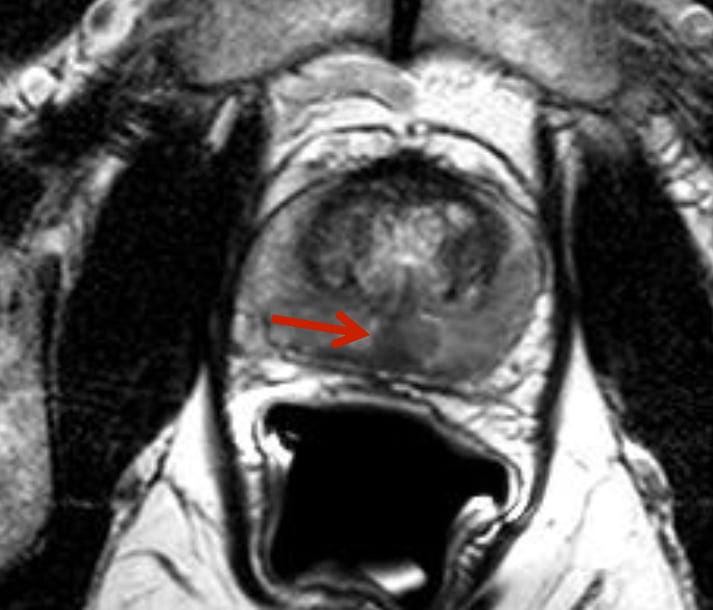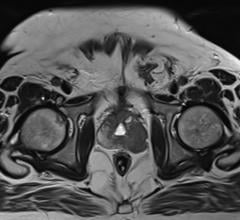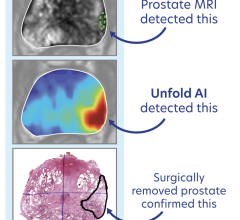
February 12, 2013 — According to a clinical study in the January issue of the Journal of the American College of Radiology, the use of volume-modulated arc therapy (VMAT) to deliver intensity-modulated radiation therapy (IMRT) to prostate cancer patients results in an overall reduction in treatment time of approximately 14 percent.
Treatment with IMRT is increasingly standard for prostate cancer. However, although the benefits of IMRT in the treatment of prostate cancer are ample, it remains a complex and time-consuming treatment modality that requires numerous gantry positions, a large number of monitor units and considerable daily treatment time commitments by patients.
“Given the time requirement by patients for daily prostate cancer treatment, we aimed to measure the true efficiency of VMAT treatment compared with IMRT using custom institutional software to record the actual in-room times,” said William A. Hall, M.D., author of the study.
Custom institutional software was used to mine the treatment times from the record-and-verify database. The in-room time (the time between patient entry and exit) was computed for each patient. Average room time was compared between VMAT patients and IMRT patients. Subgroup comparisons (1-arc or 2-arc VMAT, 5-field or 7-field IMRT, and electromagnetic transponder [Calypso] or gold-marker tracking) were performed.
Average room time was significantly shorter for all VMAT versus DMLC IMRT procedures. The average room time for all DMLC IMRT patients was found to be 14.69 ± 4.36 min, and the average room time for all VMAT patients was found to be 12.6 ± 2.62 min. Room time was longer for Calypso versus gold seed patients, but VMAT reduced treatment time in Calypso patients. This resulted in Calypso VMAT patients’ having similar treatment times to non-Calypso DMLC IMRT patients.
“With an aging population and rapidly rising rates of prostate cancer, the ability to determine the most efficient modality by which patients with adenocarcinoma of the prostate should be treated is critical. It seems from our analysis that 5-field IMRT and VMAT are the most efficient modalities by which to deliver prostate IMRT,” said Hall.
“Furthermore, our analysis shows that if more advanced methods of IMRT delivery are used, localization devices can be incorporated without any statistically significant differences in the overall treatment time. This may provide important information to prostate cancer practices looking to improve their efficiency while maximizing the quality of their radiation therapy delivery,” said Hall.
For more information: www.acr.org


 April 17, 2024
April 17, 2024 








